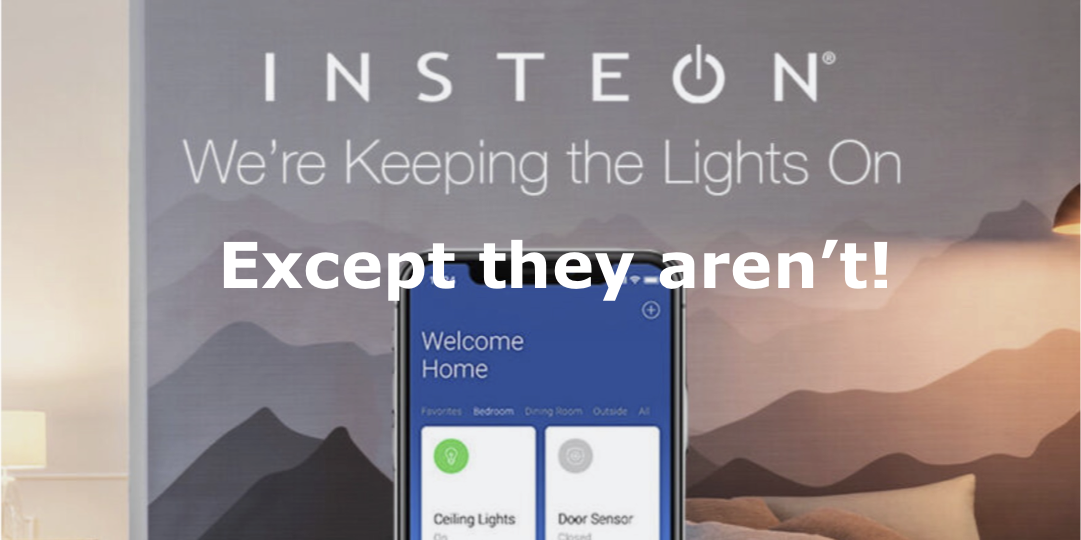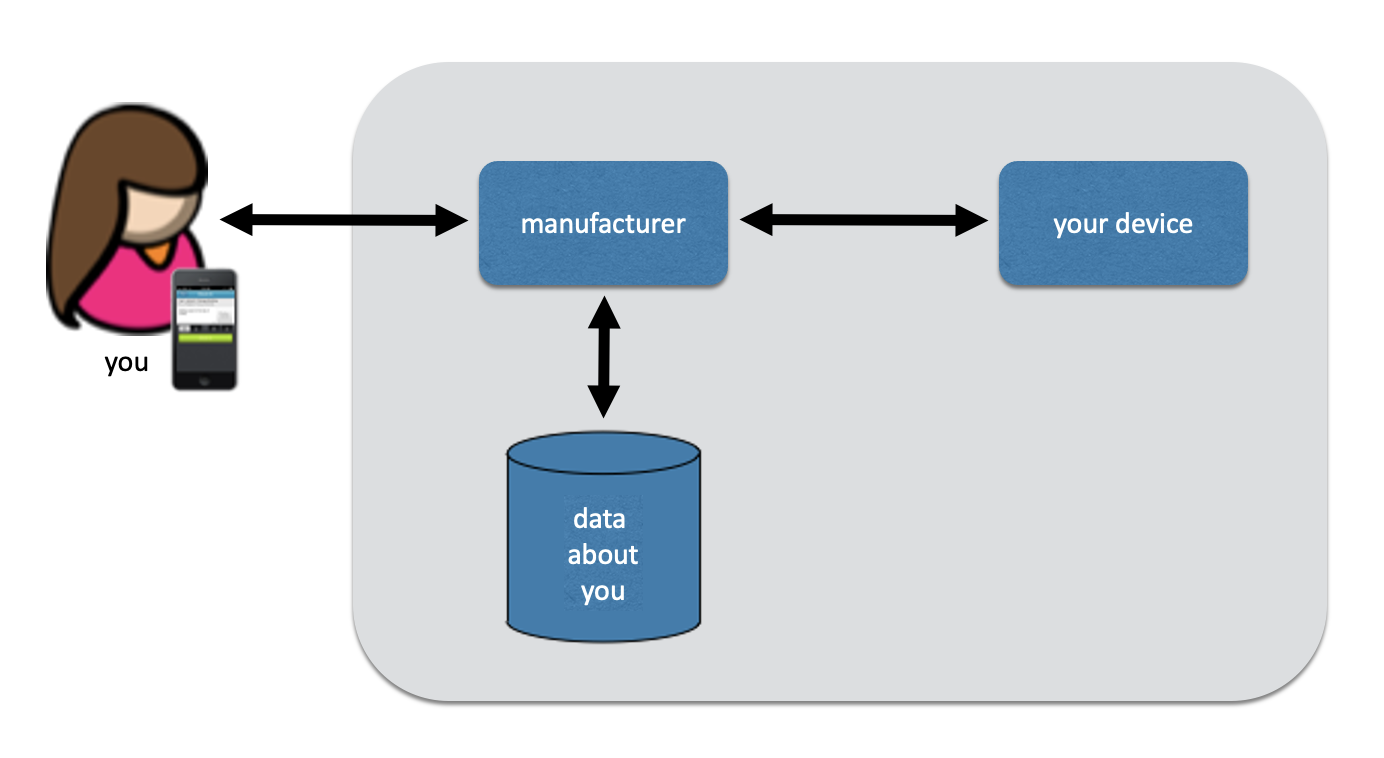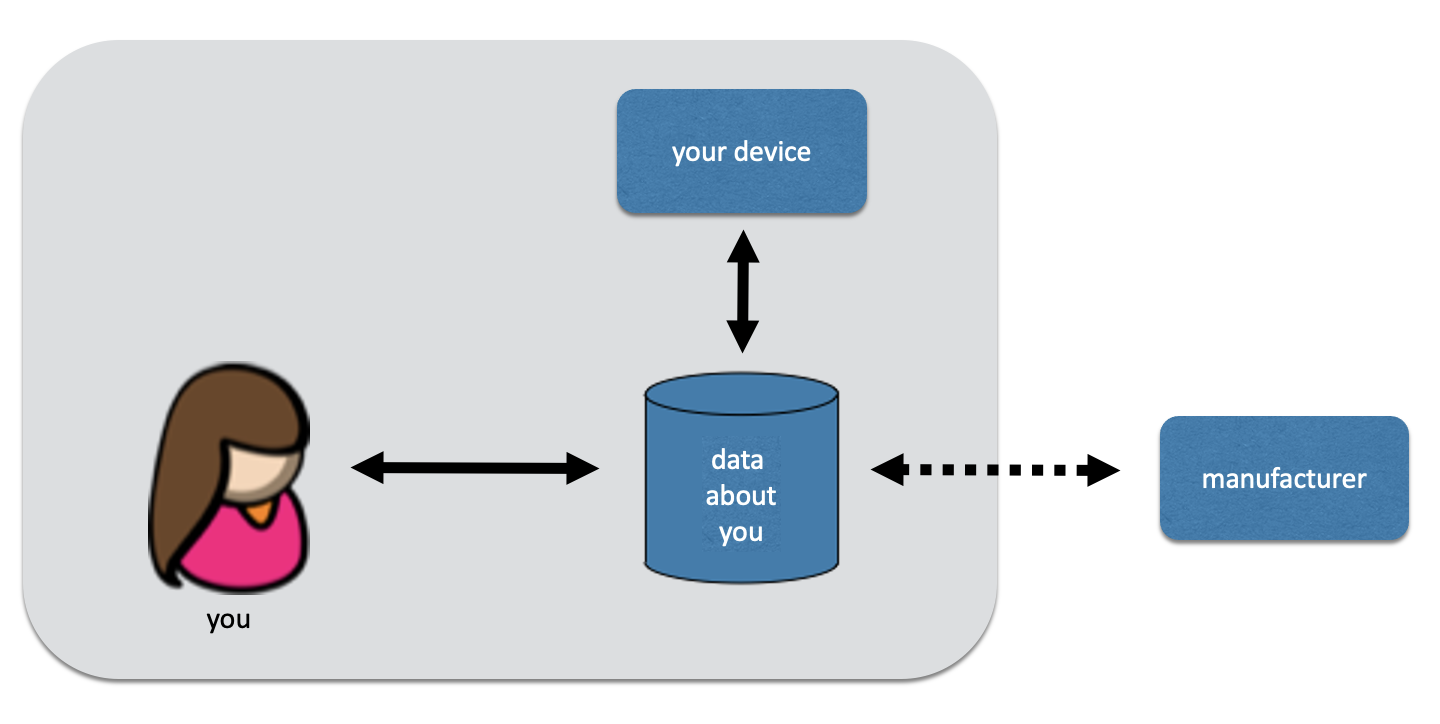Summary
The Internet of Things is more like the CompuServe of Things. We need a new, self-sovereign model to protect us from proprietary solutions and unlock IoT's real potential.

Last week Insteon, a large provider of smart home devices, abruptly closed its doors. While their web site is still up and advertises them as "the most reliable and simplest way to turn your home into a smart home," the company seems to have abruptly shut down their cloud service without warning or providing a way for customers to continue using their products, which depend on Insteon's privacy cloud. High-ranking Insteon execs even removed their affiliation with Insteon from their LinkedIn profiles. Eek!
Fortunately, someone reverse-engineered the Insteon protocol a while back and there are some open-source solutions for people who are able to run their own servers or know someone who can do it for them. Home Assistant is one. OpenHAB is another.
Insteon isn't alone. Apparently iHome terminated its service on April 2, 2022. Other smarthome companies or services who have gone out of business include Revolv, Insignia, Wink, and Staples Connect.
The problem with Insteon, and every other IoT and Smarthome company I'm aware of is that their model looks like this:

In this model, you:
- Buy the device
- Download their app
- Create an account on the manufacturer's private cloud
- Register your device
- Control the device from the app
All the data and the device are inside the manufacturer's private cloud. They administer it all and control what you can do. Even though you paid for the device, you don't own it because it's worthless without the service the manufacturer provides. If they take your account away (or everyone's account, in the case of Insteon), you're out of luck. Want to use your motion detector to turn on the lights? Good luck unless they're from the same company1. I call this the CompuServe of Things.
The alternative is what I call the self-sovereign IoT (SSIoT) model:

Like the private-cloud model, in the SSIoT model, you also:
- Buy the device
- Download an app
- Establish a relationship with a compatible service provider
- Register the device
- Control the device using the app
The fact that the flows for these two models are the same is a feature. The difference lies elsewhere: in SSIoT, your device, the data about you, and the service are all under your control. You might have a relationship with the device manufacturer, but you and your devices are not under their administrative control. This might feel unworkable, but I've proven it's not. Ten years ago we built a connected-car platform called Fuse that used the SSIoT model. All the data was under the control of the person or persons who owned the fleet and could be moved to an alternate platform without loss of data or function. People used the Fuse service that we provided, but they didn't have to. If Fuse had gotten popular, other service providers could have provided the same or similar service based on the open-model and Fuse owners would have had a choice of service providers. Substitutability is an indispensable property for the internet of things.
All companies die. Some last a long time, but even then they frequently kill off products. Having to buy all your gear from a single vendor and use their private cloud puts your IoT project at risk of being stranded, like Insteon customers have been. Hopefully, the open-source solutions will provide the basis for some relief to them. But the ultimate answer is interoperability and self-sovereignty as the default. That's the only way we ditch the CompuServe of Things for a real internet of things.
Notes
- Apple HomeKit and Google Home try to solve this problem, but you're still dependent on the manufacturer to provide the basic service. And making the administrative domain bigger is nice, but doesn't result in self-sovereignty.




